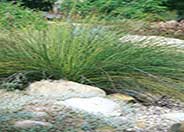
Common name:Small Cape Rush
Botanical name:Chondropetalum tectorum
Chondropetalum tectorum has 3'-4' tall stems that shoot out in all directions from the roots. Each stem has papery bracts connected to the ends that turn from tan to dark drown, then fall off. Chondropetalum can grow in marshes, in the ground with regular watering, or in drought conditions.
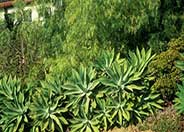
Common name:Fox Tail Agave, Velvet Agave
Botanical name:Agave attenuata
This Agave has a dramatic tropical form. Even light frost can damage its succulent leaves. It is great for containers. In the low desert, partial sun will be best. If it becomes top heavy, simply cut and stick in the ground to root. It is not a fast grower and has light green foliage. It will also die after flowering but pups around the mother will survive. Distinctive with its large rosette of leaves perched on a long curving trunk, it is a native from Mexico.

Common name:Lavender Cotton
Botanical name:Santolina chamaecyparissus
This ground cover/small shrub will grow to 3' tall and has small, grayish silver leaves with yellow flowers that bloom in the summer.
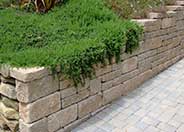
Common name:Prostrate Rosemary
Botanical name:Rosmarinus officinalis 'Prostratus'
The 'Prostratus' grows to a height of 2'-3' with a spread to 8'. Its flowers are pale, lavender blue in color; the leaves are needle-like with a dark, blue-green color. This plant makes a good ground cover, and its leaves can be used as seasoning in cooking.
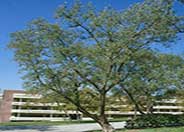
Common name:Olive
Botanical name:Olea europaea
This broad tree will grow to 40' tall and has small, gray green leaves with fleshy black fruit that appears in fall. Purchase fruitless varieties to avoid the mess.
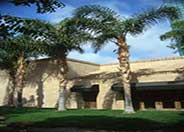
Common name:Queen Palm
Botanical name:Syagrus romanzoffianum
This palm has a very straight trunk to about 50' in height. It has arching, feathery, bright green, glossy leaves that can be 10'-15' long. It is fragile in heavy winds and a fast grower. It will become damaged in temperature below 24 degrees F.
Designer:
Photographer: GardenSoft
Practice grass-cycling by leaving short grass clippings on lawns after mowing, so that nutrients and organic matter are returned to the soil.
Remove irrigation water and fertilizer from areas where you don't want weeds to grow.